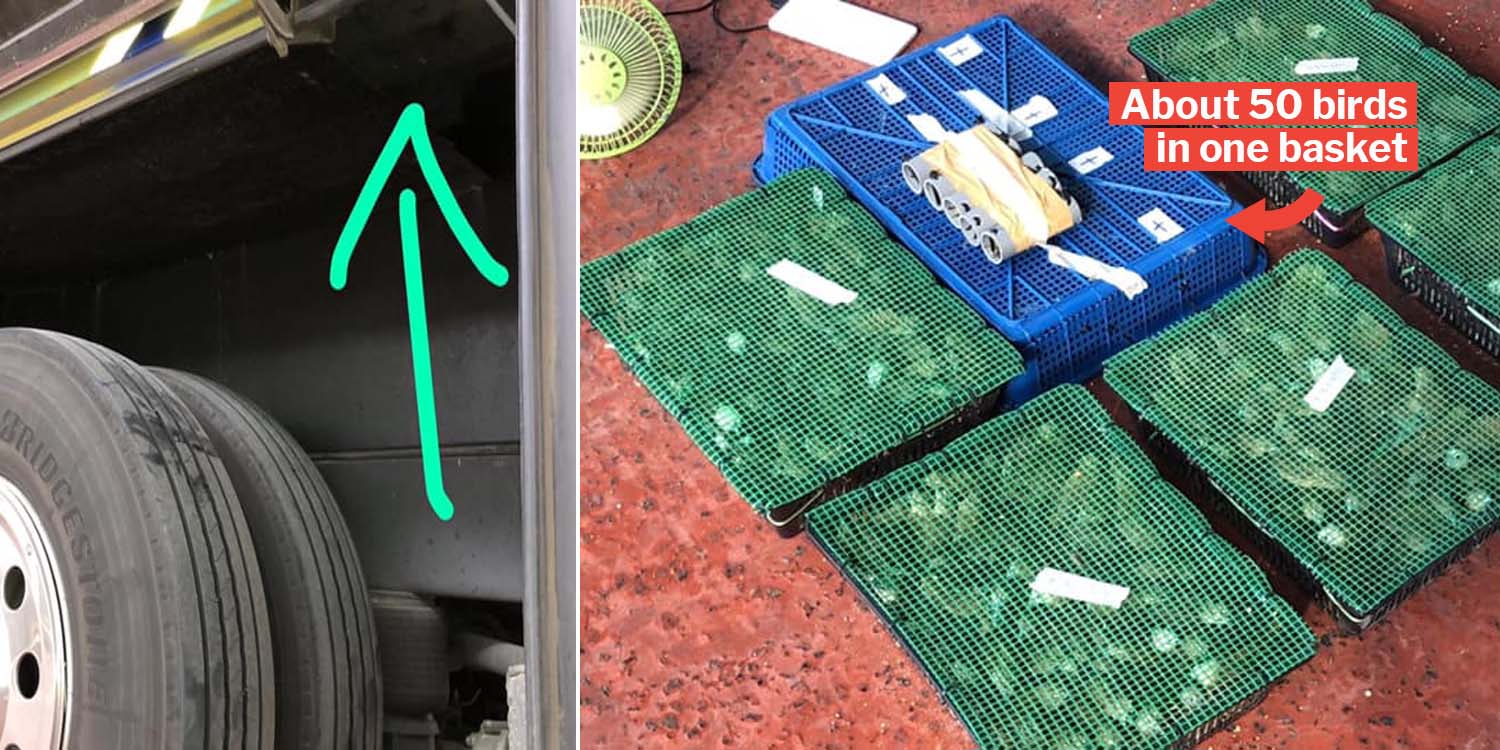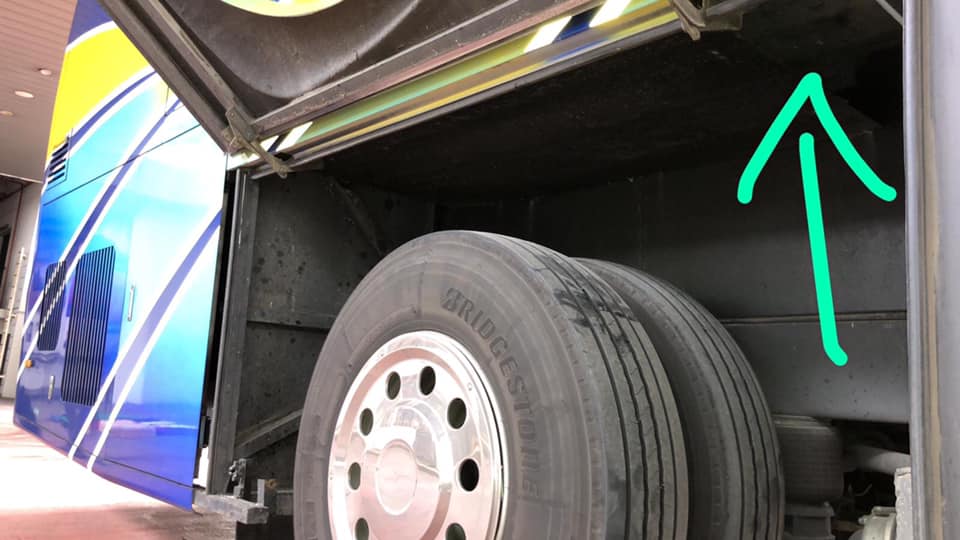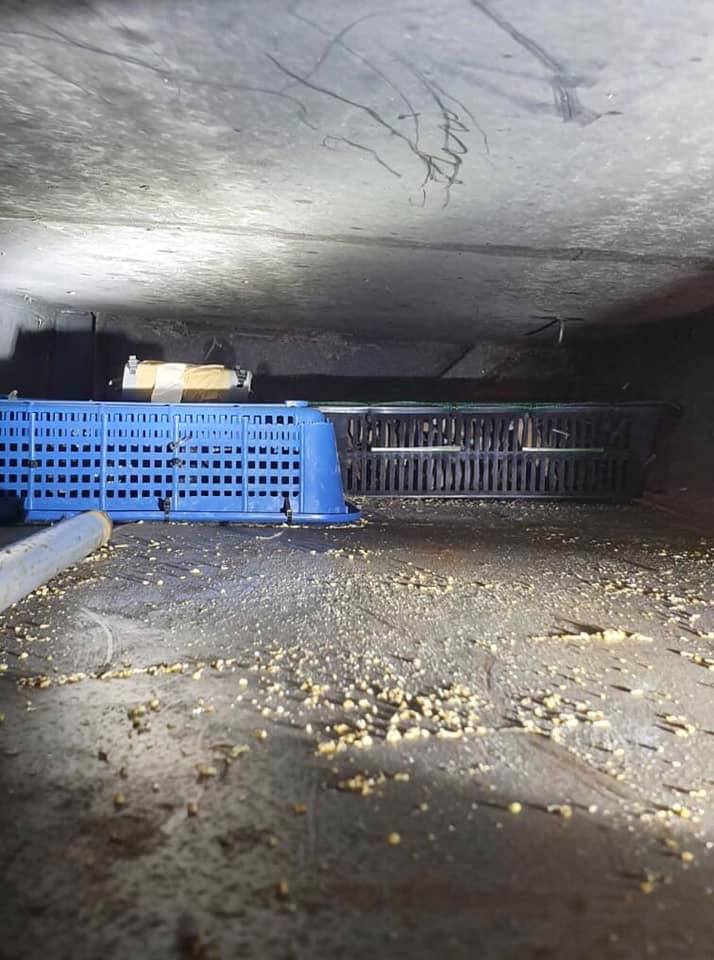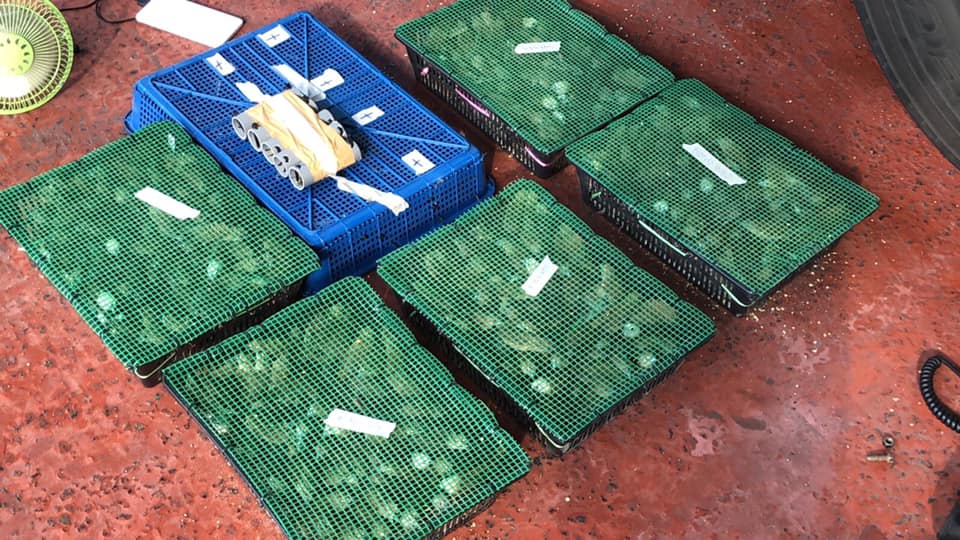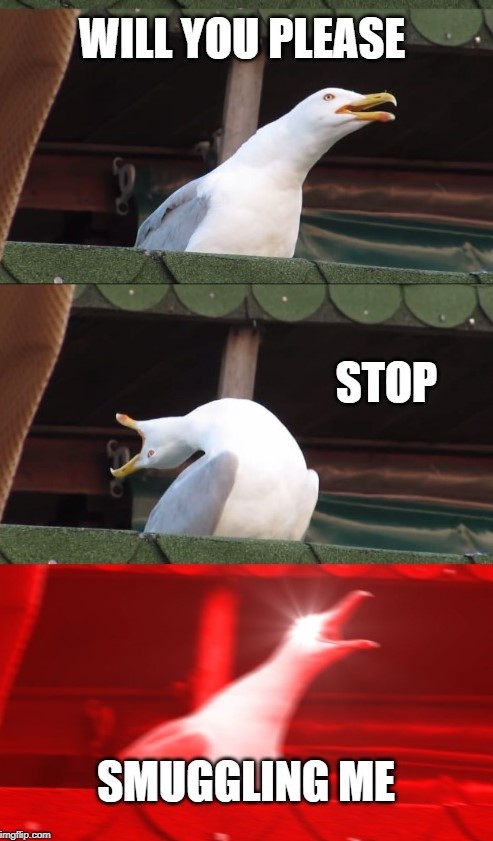Malaysia-Registered Bus Tries To Smuggle 815 Live Birds Into Singapore
Yes, it was partly the chirping of the 815 birds that led the officers from the Immigration and Checkpoint Authority (ICA) to discover a bizarre smuggling case.
The Malaysia-registered bus had come in on Saturday (10 Aug) at about 7am. The officers noticed the the rear tyres had signs of modification.
When they got closer to inspect it, they heard chirping noises. A little prod and pulling later, they discovered a compartment behind the tyre.
The compartment was a tight squeeze, about 30cm in height.
The driver had stored 15 baskets with a green meshed lid inside.
Each basket contained slightly over 50 birds – totalling 815 – crammed worse than sardines in a can.
The driver was taken in for investigation since he did not posses a valid health certificate or import permits.
Only about 600 birds survived
Because of the harsh conditions, only about 600 of the 815 birds survived. They are currently being cared for, and placed under quarantine, at NParks’ facilities.
According to ICA’s media release, the 815 birds comprise five species — 38 White-rumped Shamas, 10 Oriental Magpie-Robins, 141 Oriental White-eyes and 626 Munias (Scaly-breasted Munia and White-headed Munia).
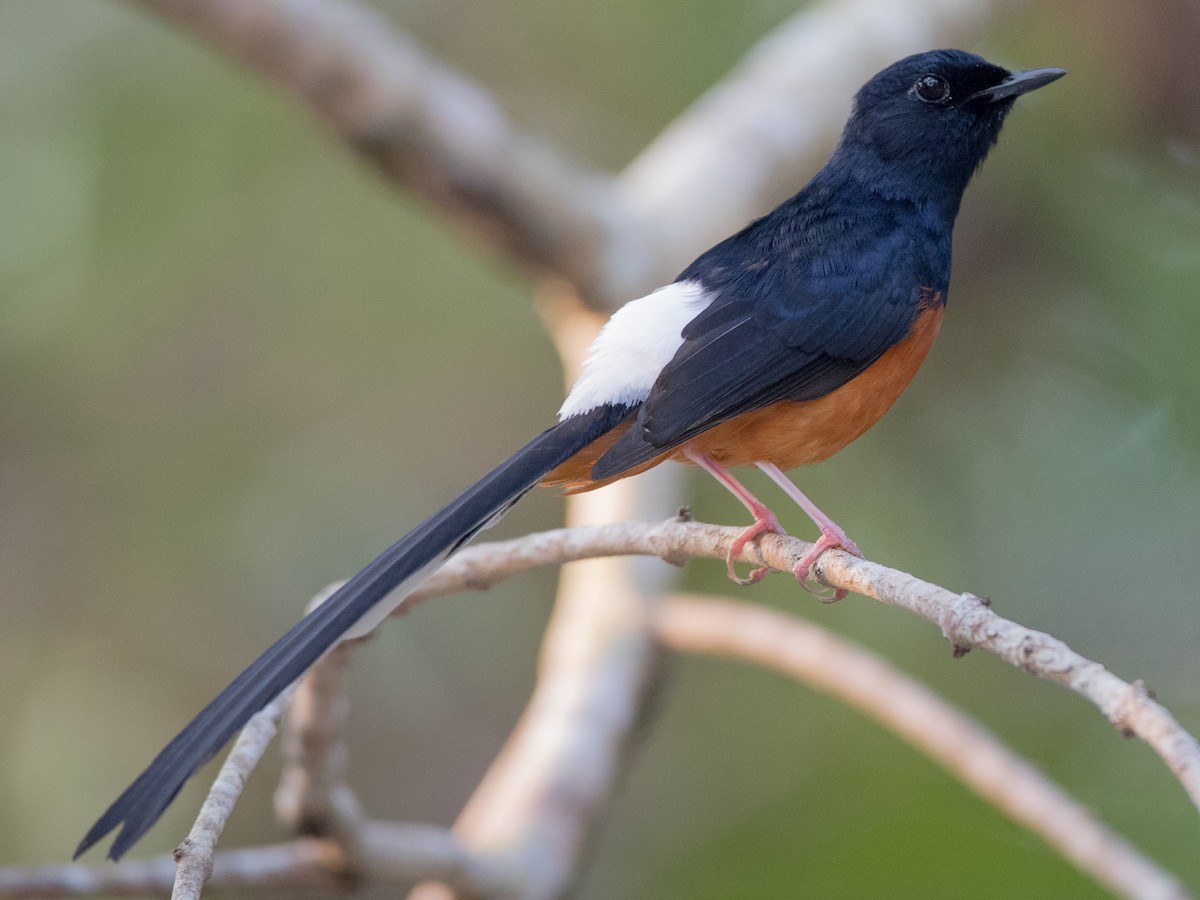 White-rumped Shama
White-rumped Shama
Source
The White-rumped Shama is apparently very rare in the region and popular among pet traders.
The statement from ICA also explained why smuggling live animals into Singapore is considered a crime.
We don’t know what kinds of diseases the birds, or any animal, might carry. The last thing we would want in Singapore is a bird flu epidemic. Apart from diseases, the animals may also end up disrupting the ecosystem and affecting other native wildlife.
Those caught illegally importing animals can face a fine of up to $10,000 and/or a jail term of 1 year. If they are found to have caused unnecessary pain and suffering to the smuggled animals, the punishment is even worse — a fine of up to $15,000 and/or a jail term of up to 18 months.
If you see any of those birds in pet stores, do ask the owner for proper certifications. This will help curb illegal trading of the species. And more importantly, the unnecessary death or suffering of those poor animals.
Featured image from Facebook.
